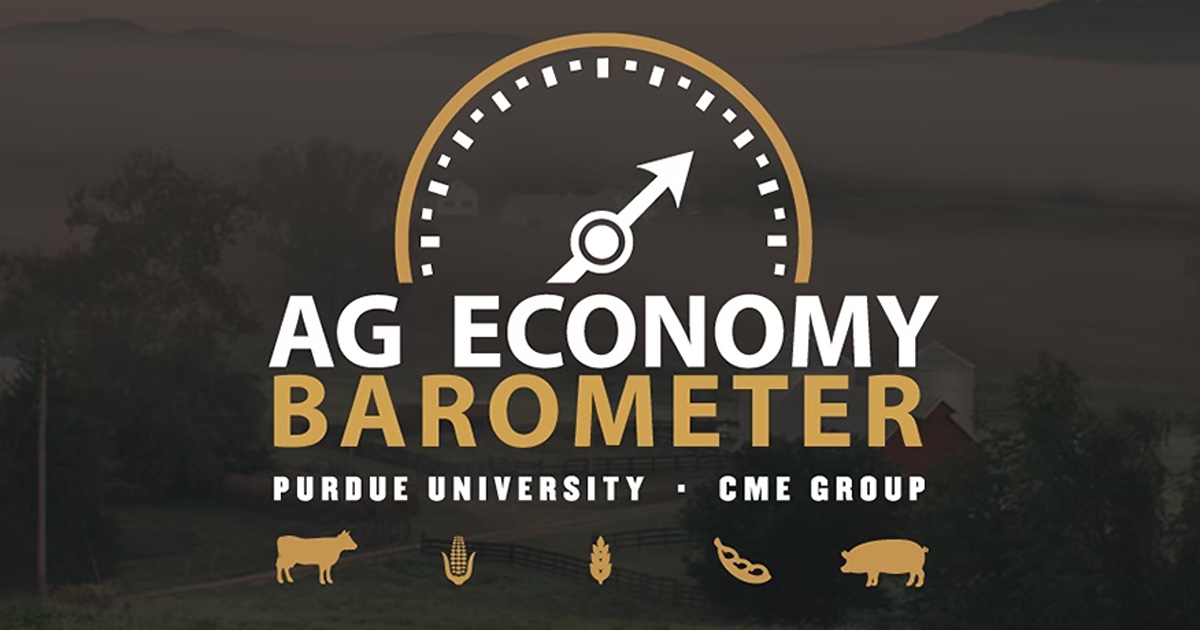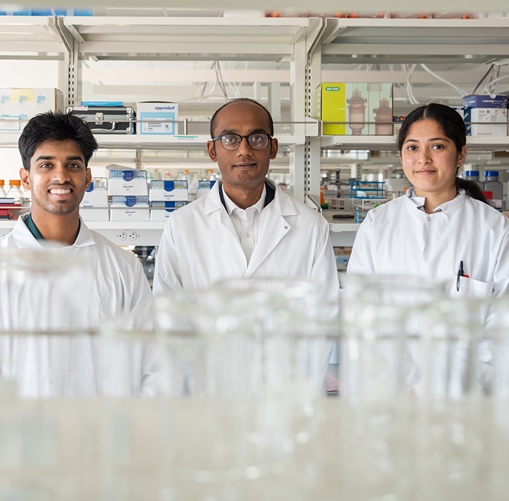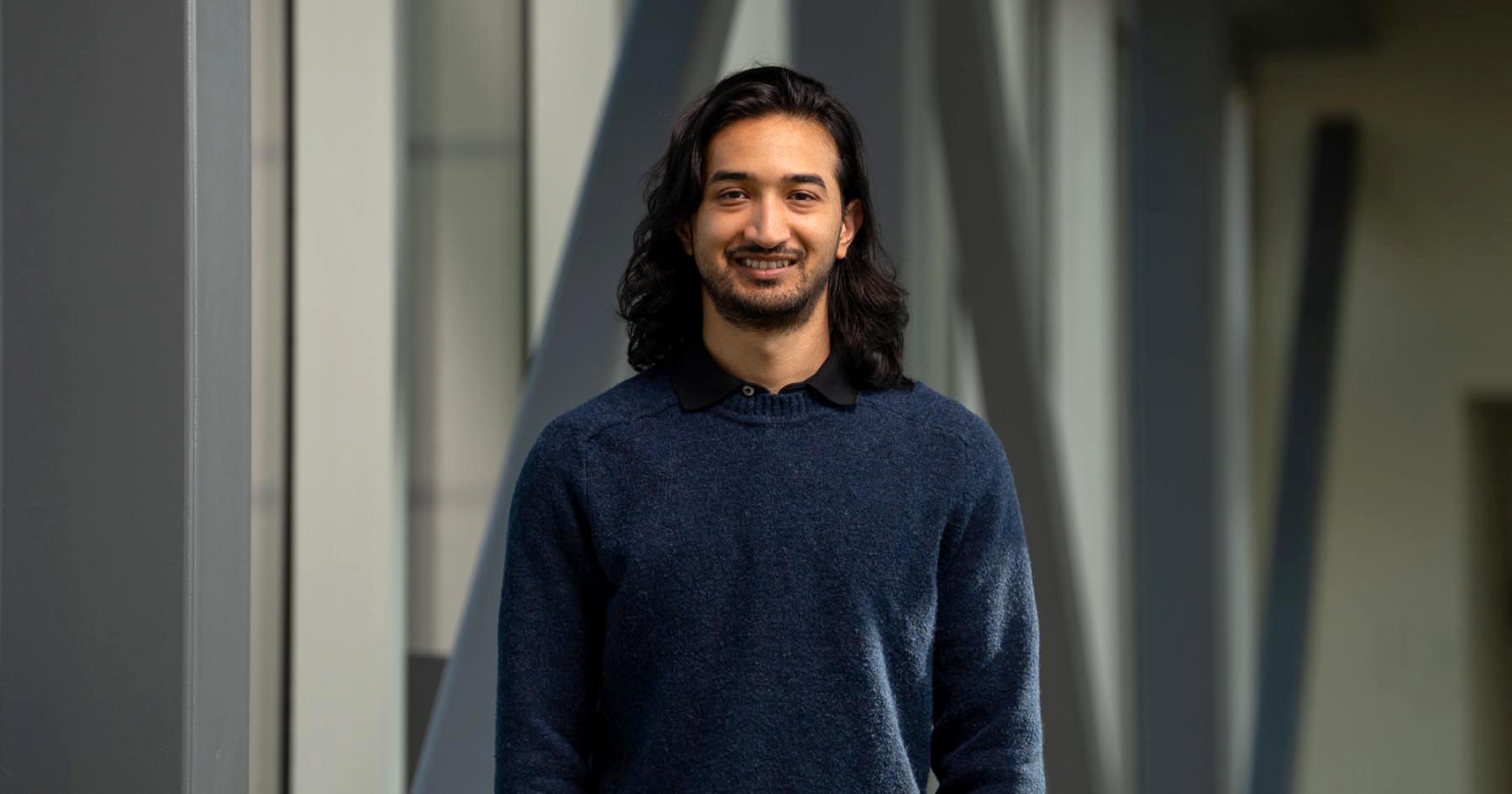Unsung Diversity Heroes assemble welcoming spaces for all
On Jan. 24, Purdue University’s College of Agriculture honored four Unsung Diversity Heroes. Nominees were selected through a formal nomination process. The awards were presented by Pamala Morris, associate dean/director of the Office of Multicultural Programs and professor of agricultural sciences education and communication, before an interdisciplinary roundtable discussion. This session, aligned with the week’s theme of algorithmic justice, showcased researchers exploring current applications of artificial intelligence and how they are integrating the principles of fairness into their work.
Team Award: The Association of Zamorano Alumni (AZA)
The Association of Zamorano Alumni (AZA) is a non-profit organization of Purdue University’s College of Agriculture faculty, graduate students, visiting scholars and interns dedicated to supporting and advancing the professional development of students and alumni from Zamorano, a Pan-American agricultural university located in Honduras.
The organization creates a vital link between the universities by working closely with individuals who come to Purdue as visiting scholars, as well as alumni who pursue graduate studies or research scholar positions. AZA plays a key role in promoting academic, social and research activities at Purdue. Faculty advisors include C.D. Cruz, an associate professor of botany and plant pathology, and Ariana Torres, an associate professor of horticulture and agricultural economics.
"Through our efforts, the university has seen a profound and lasting impact on its ability to attract, support and retain students," said Jeanine Arana, a Ph.D. student in the Department of Horticulture and Architecture and vice president of AZA.
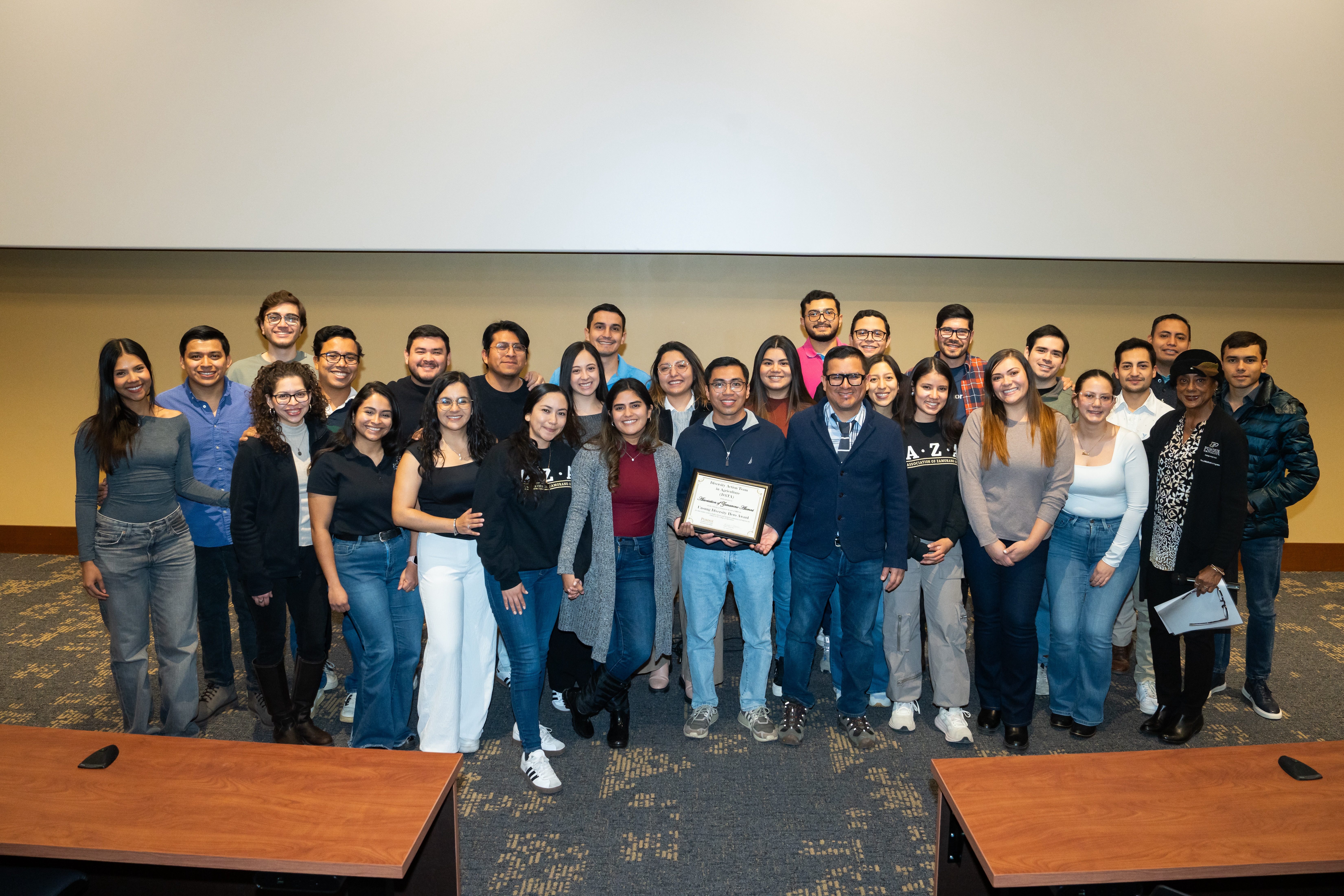
One of AZA’s most significant initiatives is its recruitment protocol, which connects talented Zamorano students and alumni with research opportunities at Purdue, broadening the pipeline for future graduate students. Additionally, in 2023, AZA organized the Annual Symposium of the Asociación de Graduados de la Escuela Agrícola Panamericana. AZA has brought more than 120 Zamorano alumni to campus, encouraging academic collaboration and strengthening Purdue’s international connections.
“AZA’s influence is evident in the significant increase of visiting scholars from diverse backgrounds, many of whom later joined Purdue as graduate students, staff and faculty. An example of this success is Catherinne Mejía, who started at Purdue as a visiting scholar in the Department of Agronomy and has since transitioned into a graduate program in the Department of Environmental and Ecological Engineering,” noted Arana. “We’ve even seen members become Purdue faculty, leading groundbreaking research that addresses critical societal challenges while fostering international collaboration through their service on departmental, college and university committees.”
Cruz added: “By fostering connections between individuals from varied backgrounds, AZA not only strengthens the Purdue community but also enriches the broader academic environment with diverse perspectives and cultural exchange. The values of collaboration, mentorship, innovation and perseverance that AZA promotes are indispensable for cultivating well-rounded leaders who can address local, national and global challenges with empathy, preparedness and resilience.”
AZA’s current members also actively volunteer within their departments: Ana Morales, Erick Oliva, German Santos, Krista Zapata and Narciso Zapata (agronomy); Victoria Gutiérrez, Marcelo Guerrero, Dalne Sinclair and Edward Moncada (food science); Wily Sic and Mariela Fernández (botany and plant pathology); Eunice Centeno-Delphia (animal sciences); Jeanine Arana, Katherine Pivaral, Lian Durón, José Cabezas, and Josué Cerritos (horticulture and landscape architecture); Allison Zablah, Leslie Aviles, Milena Agila (entomology); and Alejandra Prado (agricultural sciences education and communication).
Looking ahead, AZA is committed to supporting students through organizing agricultural facility tours, sponsoring future symposiums and actively engaging in College of Agriculture networking events.
This award recognizes AZA’s steadfast efforts to create opportunities, foster meaningful connections and nurture a sense of community at Purdue. It reflects a commitment to uplifting and empowering Purdue scholars, students, staff and faculty from all backgrounds while reminding us that some of the most impactful contributions are made quietly, behind-the-scenes,” said Cruz.
Staff and Graduate Student Award: Chris Adair
Chris Adair, who joined Purdue University’s Department of Horticulture and Landscape Architecture in April 2016 as the Purdue Student Farm Manager, has been integral to the development of the Student Farm Program.

While pursuing his undergraduate degree from Purdue, Adair became involved in vegetable farming during the early stages of the Purdue Student Farm’s development. This experience allowed him to collaborate and build connections with fellow students. Since then, he has remained dedicated to increasing access to fresh, healthy produce that honors various cultures.
Adair has worked closely with Purdue’s Cultural Centers to create on-site gardens at the Latino Cultural Center (LCC), Asian American and Asian Resource and Cultural Center (AAARCC) and the Native American Educational and Cultural Center (NAECC).
“Many plants and plant parts have spiritual and sacred significance. For example, The Three Sisters planting—maize, beans, squash—at the NAECC represents more than just food. It represents history and tradition,” explained Linda Prokopy, department head and professor in the Department of Horticulture and Landscape Architecture. “Additionally, this year, the work with AAARCC supported the growth of indigo, which is used to dye table clothes and other items.”
Chris is quietly using the Purdue Student Farm and his skills as a horticulturist to tackle food security in minority groups on campus, and he is expanding our understanding of the importance of combatting food justice issues with culturally relevant plants," added Steve Hallett, professor of horticulture.
Adair’s work with the LCC began in 2018, and the garden has since grown into the largest of the Cultural Center gardens, growing a variety of annual crops and perennial plants like herbs and strawberries. In 2020, Adair also helped launch the AAARCC garden, using innovative methods such as container, raised bed and hydroponic gardening to maximize space.
For the first time this year, all five of the cultural centers joined the Community Supported Agriculture, program, each receiving weekly shares of fresh produce from July to November.
Reflecting on the award, Adair said, “The work with the cultural centers—helping to provide not only food but the knowledge behind growing it—has been incredibly rewarding. Many folks are excited about the opportunity but lack the skills to do so. I am just happy to help. It feels good to be recognized by my peers for what I’m doing as it shows I’m making an impact.”
Staff and Graduate Student Award: Julia Buchanan-Schwanke
Julia Buchanan-Schwanke, graduate research assistant in the Department of Forestry and Natural Resources (FNR), has made a lasting impact through her leadership in wildlife disease monitoring, public outreach and positively influencing colleagues, students and the Greater Lafayette community.
In addition to her technical expertise, Buchanan-Schwanke has worked to build meaningful relationships with various communities, bridging gaps between conservation efforts and the people they serve while empowering individuals from all backgrounds to engage with nature and health-related initiatives.
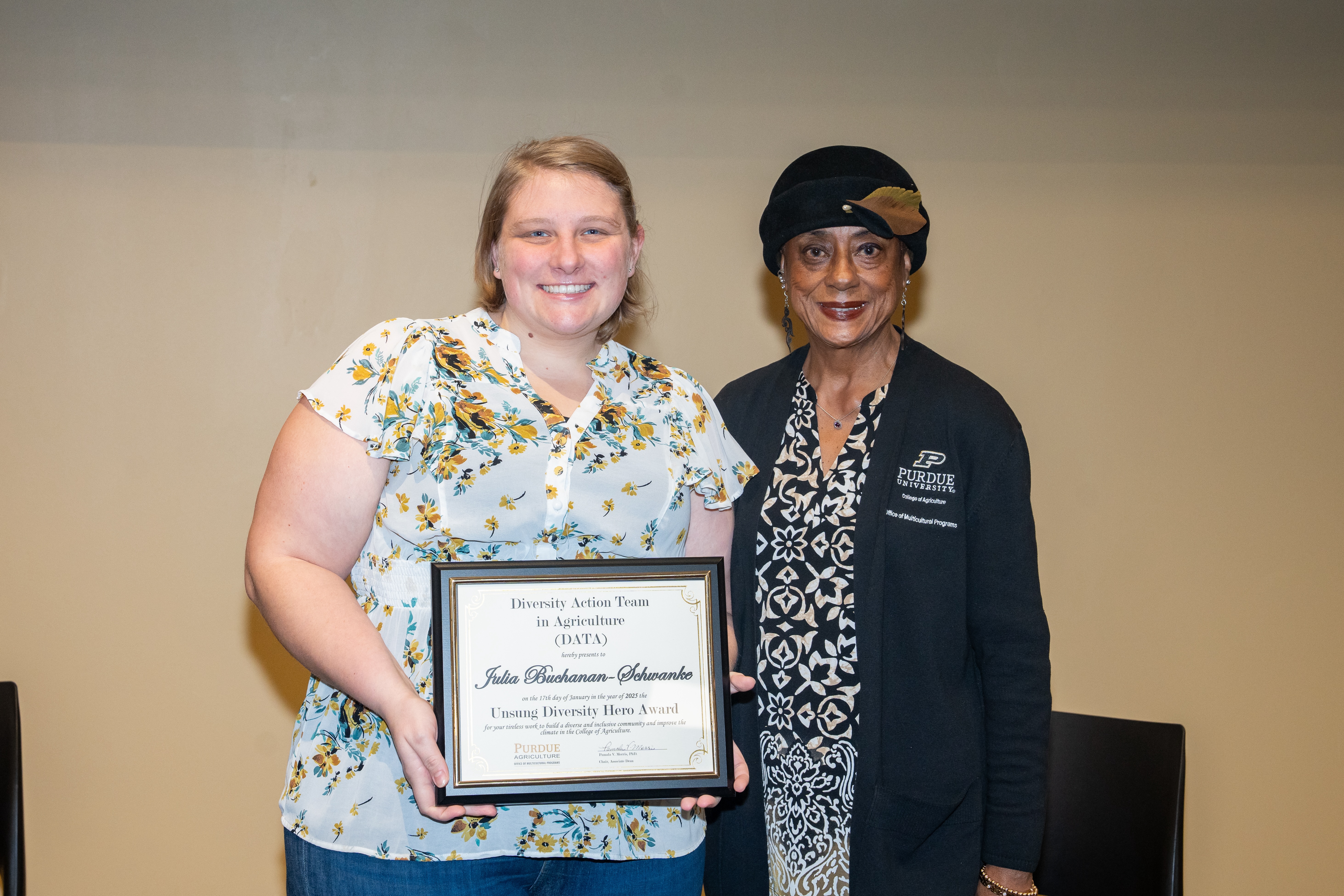
“I grew up in a bit of an atypical household with a diverse immediate family. I have three adopted siblings and a twin sister, as well as adopted nieces and a nephew,” explained Buchanan-Schwanke. “Growing up we were taught to always question the norm in every circumstance and not to just blindly accept things as they are.”
One of Buchanan-Schwanke’s most impactful contributions is her role in managing FNR’s Field Gear Closet, an initiative of the FNR Graduate Student Council (GSC) that provides essential fieldwork gear and equipment to students and professionals who might otherwise lack the financial means to obtain it. A key achievement in this initiative was her creation of an Amazon Wishlist to support the closet, as well as her outreach for donations. She not only raised awareness but also secured critical resources to sustain the program.
Julia has consistently gone above and beyond, dedicating her time and energy to meet with individuals for Field Gear Closet donations and personally overseeing its operation for undergraduate and graduate students,” said Sandra Toruno, senior administrative assistant in FNR.
Through her commitment to addressing financial barriers, Buchanan-Schwanke has played a pivotal part in ensuring that students and early-career professionals can pursue careers in wildlife and natural resource management. Her hands-on involvement with the GSC in organizing and sustaining the Field Gear Closet ensures that students, regardless of their financial background, can fully engage in field-based research opportunities.
The recognition from this award ensures that regardless of what my career goals are, I can continue to have an impact on the greater good by continuing to question societal norms and fighting for those less fortunate,” said Buchanan-Schwanke.
Faculty Award: Pat Zollner
Pat Zollner, professor of quantitative ecology in the Department of Forestry and Natural Resources (FNR), has made extraordinary contributions through his research, teaching and extensive engagement at Purdue University. His commitment to fostering diverse perspectives in both research and teaching extends beyond his faculty duties. For these efforts, he also received Purdue’s 2025 Martin Luther King Jr. Dreamer Award, presented by the Office of the Vice President for Ethics and Compliance.

Since 2007, Zollner has been a key member in the Sloan Indigenous Graduate Partnership’s (SIGP) leadership team, helping launch the program and secure funding to increase the number of Indigenous graduate students in STEM. Collaborating with Zollner, Purdue has successfully recruited 72 SIGP scholars, with over 94% remaining enrolled or graduating. Twelve SIGP alumni, including two from FNR and mentored by Zollner, have become faculty members.
"The success of SIGP would not be possible without Dr. Zollner’s tireless and exceptional contributions," said Kevin Gibson, assistant vice provost of the Office of the Vice Provost for Graduate Students and Postdoctoral Scholars, director of SIGP and professor in the Department of Botany and Plant Pathology.
Zollner’s dedication extends to participating in weekly evening classes focused on professional development and community building for SIGP scholars, as well as mentoring students across disciplines. Through career planning and guidance, he has made a lasting positive impact on Indigenous graduate students’ success at Purdue.
I’ve witnessed firsthand the exceptional care Dr. Zollner provides to his students. His support is a rare balance of empathy, patience and accountability. He actively listens to students’ concerns while fostering a learning environment that prioritizes their success,” said Zhao Ma, interim head and professor of the forestry and natural resources department.
Beyond SIGP, Zollner has served as the primary research advisor for five Indigenous graduate students and helped recruit and support seven more. He has partnered with organizations like the Great Lakes Indian Fish and Wildlife Commission, which represents 11 Ojibwe tribe’s treaty rights in Minnesota, Wisconsin and Michigan. These collaborations have provided Indigenous students with opportunities to engage in culturally relevant research, including extensive studies of American martens in Wisconsin, mule deer in New Mexico, reservation dogs in South Dakota and fruit bats in American Samoa.
Zollner is also actively involved with the Native Peoples’ Wildlife Management Working Group, a forum for members of The Wildlife Society (TWS) that promotes communication and resources on Indigenous wildlife management issues while encouraging future Native wildlife professionals. His contributions include organizing symposiums, workshops and an annual dinner for Indigenous scholars at TWS, as well as delivering various presentations.
“Dr. Zollner has been a champion for Indigenous students for over 17 years,” said Gibson. “His sustained efforts have helped create an environment where Indigenous students are valued and supported.”
“I am flattered to receive an award for my contributions, but I am most grateful for the patience of those who helped me grow in this area, particularly the SIGP scholars and other underrepresented minority students who trusted me as an advisor, as well as my colleagues who invested their time and effort mentoring and teaching, writing grant proposals and running programs alongside me,” explained Zollner. “It might sound trite, but the significance of this award lies in the recognition of the many allies who have contributed to these successes. Moving forward, I intend to continue my work helping students grow in ways they never knew were possible.”

